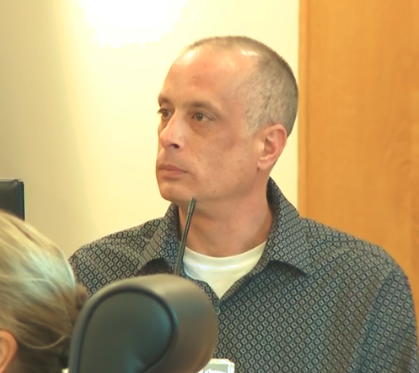By Michael Davidow, Radio Free New Hampshire
In the wake of E. Jean Carroll winning her civil suit against Donald Trump (brave woman!), it’s hard to know what to make of the Republican voters who still favor him for the White House in 2024. But it was hard to know what to make of them before that verdict came down, as well, when Trump was merely known to have instigated and then defended a violent physical assault on the United States Capitol itself.
When we are up close against a phenomenon, it is just as hard to understand it, as if we were far away from it. What we see is blurred and what we hear is muffled. The middle view is always best.
On that note, and taking a few steps backward, Trump’s rise and continued popularity has less to do with the singular attractiveness of fake orange hair than it does with the trend of entertainment becoming the measure of influence in our country; with how hunger and need has arisen in the past few decades in the face of concentrated and terrific wealth; and with how power in our country has shifted away from the political arena and towards private enterprise.
With regard to that last thought: even with Washington perpetually tied up in knots, we still believe in the imperial presidency, meaning the primacy of executive power as opposed to legislative power. That belief is a legacy from our past; from our experiences in the Great Depression, the Second World War, and the Cold War, and from the myriad complications of modern technology. From Roosevelt to Nixon, regardless of which party controlled it, the White House stood alone for a very long time as our nation’s main source of policy and initiative, and we still think of it in those terms.
Our taste for an imperial presidency was a departure from the norm, though. Born of domestic crisis and nurtured through decades of international grief, it was a necessary response to what otherwise would have been a vacuum of leadership. The nineteenth century presented a different story altogether: politics was hack-work for nearly all of our nation’s first hundred and fifty years. Men (and they were all men) of middling talents and middling intellects bumbled along and stayed out of the way as titans of industry made all the key decisions. Sound familiar yet?
We could not afford to treat our politics as a subset of our entertainment industry, unless we believe that our politics do not really matter; unless we can go to bed every night secure in the knowledge that our hedge funds, our big banks, our big computer companies, and our big energy companies are the ones who really count in this country, and everything else is window-dressing.
Trump’s supporters argue otherwise, of course. They argue that he’s been framed; that he never raped Jean Carroll, he never fomented a rebellion after our last election, and (of course) that he himself was robbed of a victory. These are all dead serious complaints. They would also say that their politics is dead serious; in fact, they often call it a matter of life and death.
But their stories are all fairy tales, told by a desperate man and believed because people want to believe whatever makes them feel better. We expect such a belief system of children, not of adults. And their program for action is a fairy tale, too, a collection of simple solutions (no foreigners, no abortions, keep burning oil) to complicated problems (the knowledge economy, a crisis in faith, the world getting hotter). And everyone who knows better but who still goes along with this crowd, who allows them to set the Republican tone, never mind the American tone: they are the guilty ones. They are the ones treating politics as a game. Or, alternatively, they know it is.
The last time this happened, it ended with not just one catastrophe, but a series of them. It ended with our trusts choking our economy and our slaughterhouses feeding us poison. It ended with the Great Depression and it ended with the Second World War. It ended, ultimately, because democracy proved capable of regenerating itself to meet the demands of a new age.
It needs to end again, but neither endings nor beginnings are tidy affairs. We can expect more ugliness and we can expect more harm to occur. The measure of how ugly it is: people are still willing to vote for Donald Trump.
Davidow writes Radio Free New Hampshire for InDepthNH.org. He is also the author of Gate City, Split Thirty, and The Rocketdyne Commission, three novels about politics and advertising which, taken together, form The Henry Bell Project, The Book of Order, and The Hunter of Talyashevka . They are available on Amazon and Barnes and Noble. Davidow’s Chanukah Land can be found here.





